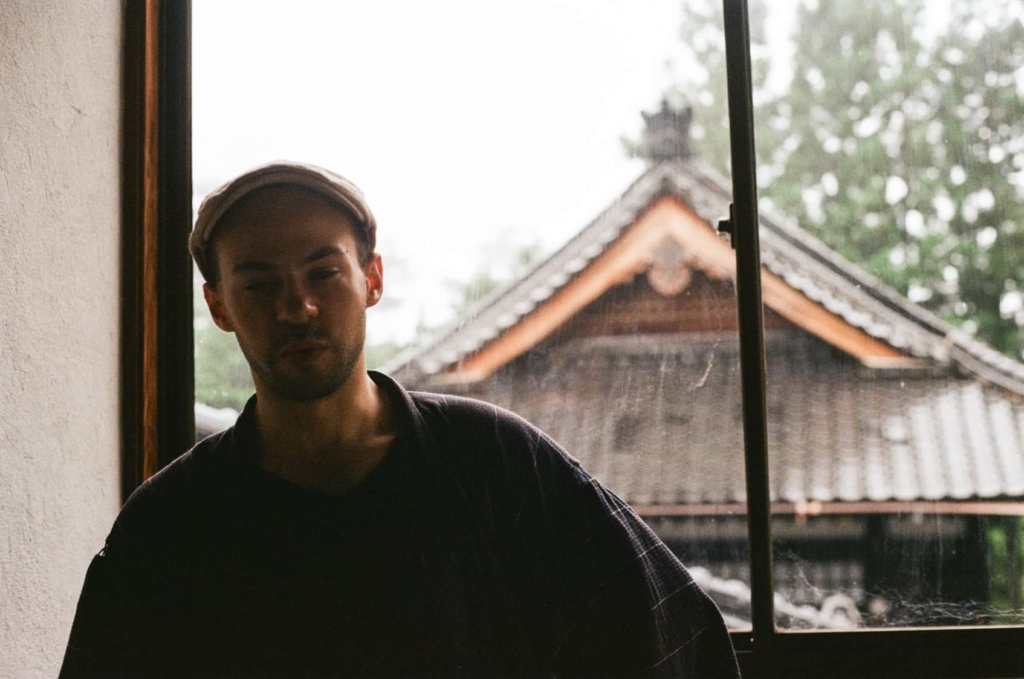Clement
In March, I have decided to start the practice in Antaiji, for a long period of time. Before that, it’s quite simple: my parents divorced, my mother had to stop working because she had a cancer, a high school friend who shoots himself in the head, my father who become a homeless… Just to have a taste of impermanence. Then I met Buddhism through my studies in philosophy, I start to practice zazen in groups related to Taisen Deshimaru in Paris while teaching japanese philosophy in a jail, and after various experiences in the world of work I decided to live in Kyoto, and I practiced in the zazenkai of Mugekoin and Kounji. I also practiced with Jeff Shore in Kyoto for a few months, but the schedules were difficult to match with my work. I also used my time in Kyoto to meet monks, diligent lay people, I tried to understand a little better how Japanese Buddhism works. At that time my roommate was a researcher in Buddhist studies (Otani University), and thanks to him I learned a lot about the complexity of Buddhism. In the same way that nukazuke ferments in a jar, my different experiences have come to a certain degree of ripening and I have decided to let go of a comfortable job as a tour guide in Kyoto, my accommodation, I explained to my girlfriend that other priorities happen to me, and because I’m the kind of guy who can read Heidegger easily but who cannot choose which ketchup bottle to buy in a supermarket, I thought it was time to connect abstraction and pragmatism, so I came to Antaiji to devote myself totally to the practice of Zen.
I had no illusions when I arrived here. I knew that monks are ordinary people with flaws and limitations, that there are in temples the same problems as in society (money, social relations, anxiety, jealousy, etc.), that Zen itself has many facets not limited to Antaiji. In a way, making zazen and Dogen’s texts the center of the practice is something reformist in the Japanese context. So I didn’t come here to practice “pure” or “true” Buddhism, or even to “do zazen”. I came to live a religious life, simple, in a solid sangha. Antaiji was in my way, but it could have been another temple or something else. A temple is ultimately like a Pure Land: you go to another world (the temple) to meet a bodhisattva (a teacher) and then come back to the ordinary world (life outside the temple) and help others in samsara. Live between worlds. I have to say that I feel great gratitude to the people who do Antaiji with me every day, but I have never felt any form of addiction or obligation to be here. Temples are also impermanent. Paradoxically, this feeling gives me a certain serenity in my practice: whether things are like this or things are different, it suits me. In the end I believe I didn’t come to solve personal problems, but it was because something within me was resolved that I was ready to begin intensive practice in a temple. It was simply the best thing to do, at the best time.
Anyway, I’m happy with the time I have spent here this year. But what does “practice in Antaiji” really mean? Be a member of the sangha? Keeping up with the schedules and putting all your heart into the things to do? Yes, of course. But in my case during these months of practice, I tried not to count the days, not to judge the events. Much like the trees that surround the Hondo, I have tried to grow resistant to the winds, confident in the Way, without worrying that fruit will grow naturally when spring is over. Until now, therefore, I have above all learned to wait within myself, to be less rigid, more attentive and patient, to have confidence. And above all, not to lie to me about my deep motivations.
My experience as a novice practitioner has been intense, and it is impossible to summarize in writing anyway. I made a significant number of mistakes as a tenzo, the sound of the bell was not perfect, singing the sutras well took a long time, the samu was sometimes difficult, the language barrier was sometimes complicated to manage, zazen was not as calm as it could have been… When I arrived at the temple, I also felt a kind of frustration. For example as Tenzo I wanted to serve practitioners well, but being limited in my cooking skills I found it difficult to show my efforts and feelings on the plate. You can be diligent and try to do your best, if you miss cooking the meat people will remember your failure and not your intention. You will have complaints about cooking the rice but no one will tell you when you have properly cooked the tomatoes. Behind this way of teaching, there is a lesson: whether your dish is good or bad, whether you finish the morning cleaning quickly or not, whether your rinko is interesting or not, the most important is perhaps the intention behind your action, your attitude and your way of fundamentally questioning yourself. To have faith is to learn to doubt. However, no one sees what’s on your mind when you wash the pans, and everyone becomes attached to the result you put on the table. And even if that seems unfair to you, you have to know how to deal with it. It is also a part of reality. In all of these experiences, therefore, I have been in front of myself, as if brought back to my own limitations, to my impatience, brought back to an instinctive fear of “missing something” that I had to control. As a tenzo, I notice a lot of things about myself, especially my tendency to select menus and ingredients to compensate a sort of lack of confidence in myself. Again and again, straighten his mind… So, I have had many opportunities to meet me, and Antaiji is a place where it’s hard to dodge reality. This state of inner tension, of questioning, I want to keep and deepen it. It is like if the temple itself was constantly asking this question, the meaning of which becomes clearer according to its experience: “are you really sure you want to continue the practice?” It is how you integrate this issue into your daily life that will give meaning to your presence here. We are moving forward on this issue together. On this point, I don’t know if my behavior or my attitude has deeply changed, but what is certain is that I already accept myself better.
The most difficult thing for me was to go back to eating meat. I knew that life in Antaiji involved meat, and I agreed to make some concessions to practice here. But when we receive meat, smiles appear on faces, we talk about recipes, cooking methods, we talk with a certain passion about sauces to be used with deer or wild boar. We also planned to kill the chickens. Antaiji is therefore a place where participating in the death of a living being is considered normal, but where the texture of soba is a serious matter. I also have gratitude for the people who donate meat to Antaiji, that doesn’t mean it’s an ideal situation. But ideal situations probably don’t exist, and in a way the definition of compassion is also something relative. I took a step back with my opinions. Lack of judgment is not, however, synonymous with lack of discernment.
While the “outside world” was distressed by the Corona virus, Eko officially became Docho. This is a good thing. I like his fairly straightforward way of teaching. In her words and discipline, she has enough strength to protect daily life in Antaiji, and to bring us back to the “present moment” when we go astray. There is a balance between compassion and thoroughness that makes me want to practice alongside her, and building a new sangha is quite motivating. I am very lucky to be practicing with such serious people. Thank you.
In November, I did Takuhatsu in Kyoto with Myogen, Bogdan and Takahashi. It’s like coming back to the city where I had my first experiences in Japan. A comeback in another way. I really liked being in the street, in front of people who thank and who seem happy to see monks. In Antaiji we live in the mountains and direct contact with the laity is limited, but doing Takuhatsu helps to realize the powerful bond between the lay people and the temples practioners. It makes sense of what we do in the temple, and it’s quiet different than receiving a donation through paypal. We can do zazen alone in an apartment, we cannot do Takuhatsu alone in an apartment. This experience clearly broadened my definition of what a sangha is.
To sum up in a few words, the most important thing in this year 2020 has been my wish to continue the practice for the rest of my life. My experience in Antaiji could have made me disgust with Zen or made me stop practicing, and if I will not be in Antaiji in 20 years I hope to walk as well as possible on the Way, correct my attitude, see my imperfections, clarify my mind. In a way, fail successfully.
Gassho.





